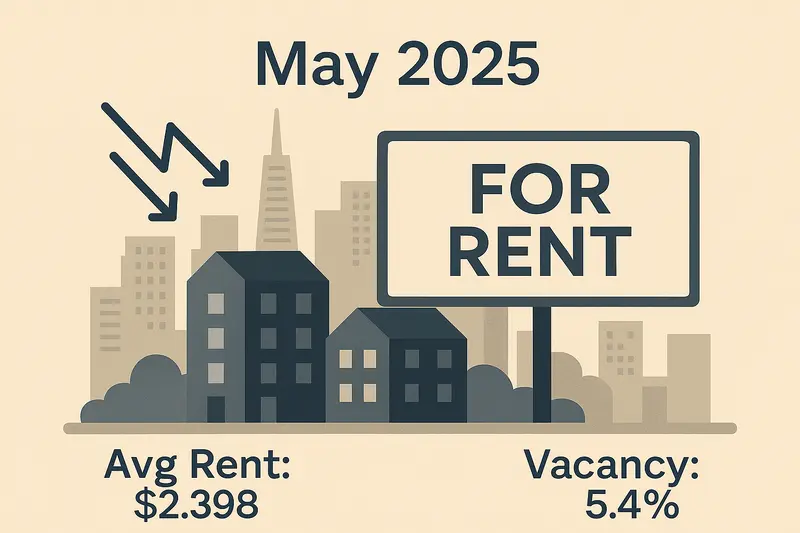Low Appraisal on a Home: What Buyers & Sellers Can Do
Question
Answer
When purchasing a home, one of the most important steps is the appraisal, which determines the market value of the property. If the house appraises too low, it means that the appraised value is less than the agreed-upon purchase price. This can complicate the buying process, especially if you're financing the purchase with a mortgage. Here's what happens if the house appraises too low and the options available to both buyers and sellers:
1. The Impact on Your Loan: If the appraisal comes in lower than the purchase price, the lender will typically only approve a loan based on the appraised value, not the agreed-upon purchase price. For example, if you’re purchasing a home for $300,000 but the appraisal comes in at $280,000, the lender will base the loan amount on $280,000. This means you would need to come up with the difference between the appraised value and the purchase price out of your own pocket.
2. Options for the Buyer: As a buyer, there are several options if the appraisal comes in too low:
- Renegotiate the Price: You can try to renegotiate the purchase price with the seller. If the seller is willing to lower the price to match the appraised value, you can proceed with the transaction as planned. Sellers may be more willing to negotiate, especially if they are motivated to sell quickly or if the market is cooling down.
- Pay the Difference in Cash: If the seller is not willing to lower the price, and you still want to purchase the home, you may decide to pay the difference between the appraised value and the purchase price in cash. This option may be feasible if you have additional savings or if the home is worth the extra investment.
- Appeal the Appraisal: In some cases, you may be able to challenge the appraisal if you believe it was inaccurate. If you can present evidence that the appraiser missed important comparable properties or made errors in the valuation, you may be able to get the appraisal reconsidered. Your lender can request a second appraisal or review the report for any discrepancies.
- Walk Away from the Deal: If the appraisal is too low and you’re unable to renegotiate or cover the difference, you may decide to walk away from the deal. If your contract includes an appraisal contingency, you can back out of the purchase without losing your earnest money deposit. This is especially useful if the appraisal comes in significantly below the purchase price, and you don’t want to risk overpaying for the property.
3. Options for the Seller: If the appraisal comes in lower than expected, it can create challenges for the seller as well. A low appraisal may prevent the buyer from securing enough financing, especially if the buyer is relying on a mortgage to cover the cost. Sellers have a few options if this happens:
- Lower the Sale Price: Sellers may choose to lower the asking price to match the appraised value. This can help keep the sale moving forward, especially if the buyer is reluctant or unable to come up with the difference in cash. Sellers may also be motivated to lower the price if they have another potential buyer lined up or if the market conditions aren’t favorable.
- Challenge the Appraisal: Sellers can also challenge the appraisal if they believe it was inaccurate. The seller may provide additional comparable sales data to the lender or request a second appraisal. However, it’s important to note that the appraiser’s decision is typically final, and challenging an appraisal can be difficult.
- Wait for a Better Offer: If the seller is not satisfied with the outcome and believes the appraisal was too low, they might decide to wait for a better offer. In some cases, the seller may choose to relist the property and seek a higher offer, although this comes with the risk of the property sitting on the market longer.
4. Impact on the Real Estate Market: In a hot real estate market, low appraisals can create friction between buyers and sellers, especially if home prices have been rising quickly. Sellers may be reluctant to lower their price, and buyers may be hesitant to pay more than the appraised value. In cooler markets or in areas with lower demand, appraisals coming in low can be more common, and buyers may have a better chance of negotiating the price down.
5. The Role of the Appraiser: Appraisers are independent professionals who are tasked with evaluating the fair market value of a property based on comparable sales, the property’s condition, and other factors. The appraised value is meant to protect both the buyer and the lender by ensuring the home is worth the price being paid. However, appraisers don’t always agree on value, and sometimes their estimates may seem conservative, especially in fast-moving or volatile markets.
Conclusion: If the house appraises too low, it can create complications for both buyers and sellers. Buyers have the option to renegotiate, pay the difference, challenge the appraisal, or walk away. Sellers, on the other hand, may choose to lower the price, challenge the appraisal, or wait for another offer. In either case, it’s essential to work closely with your real estate agent and lender to understand your options and make the best decision based on the circumstances. Understanding the appraisal process and how to navigate a low appraisal can help ensure a smooth transaction.


